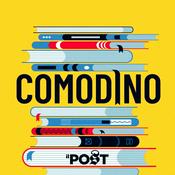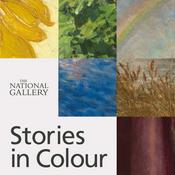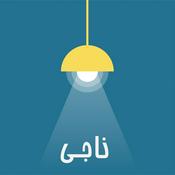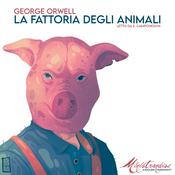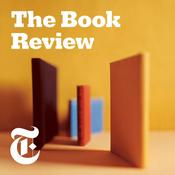468 episodi

Textile Workers & the Syrian-American Working Class | Stacy D. Fahrenthold
22/12/2025 | 51 min
Discover the interconnectedness of peddling and factory work, the surprising origins of the Aloha shirt, and the key role Syrian workers played in major labor actions like the 1912 Bread and Roses strike in Lawrence, Massachusetts. Associate Professor of History at the University of California and author of "Unmentionables: Textiles, Garment Work, and the Syrian American Working Class" Dr. Stacy D. Fahrenthold discusses her work which offers a class-conscious history of the Syrian-American diaspora, a community of about half a million people in the 1910s, 1920s and 1930s. While the "peddler" is often the central figure and icon of this diaspora's economic history for over a century, Fahrenthold shifts the focus to the new immigrants who came to the U.S. and found work in the textile industries. The conversation explores the hidden role of Syrian-American garment workers, particularly young women, who produced goods like "kimonos", undergarments, stockings, and household textiles. 0:00 Introducing Unmentionables & Shifting the Icon from Peddler to Laborer0:40 Lawrence, Massachusetts: The Second Largest Arab-American Community1:48 Who Was The Syrian American Working Class?2:41 The Gap in Arab-American Diaspora History3:14 Textiles and Garment Work4:50 The Peddler: Icon vs Reality7:12 Labor Experience In The U.S. vs Greater Syria8:50 Skilled Silk Weavers and First-Time Proletarians10:14 Syrian Workers and Global Labor Movements11:27 The Bread and Roses Strike of 191215:09 Dynamite, Arrests and Militarization of the Syrian Neighborhood19:16 Scale of Syrian Immigration Compared to Other Groups22:14 The Majority of Textile Workers Were Women24:43 The Connection to the Silk Industry in Mount Lebanon27:28 A Look Inside a Syrian-American Garment Factory29:04 The Kimono: Branding and Orientalism31:50 The Effacement of Origins in the Marketplace35:36 Economic and Social Mobility For Syrian-American Families39:03 The Legacy of Syrian-American Textile Companies40:01 The Lebanese Origins of The Aloha Shirt43:14 Marghab Linen and Racial Stereotyping44:22 Geographic Dispersion of Syrian Communities47:09 Illicit Activity and Contraband in the Diaspora49:22 Recommended Readings In Arab-American History Stacy Fahrenthold is a historian of the modern Middle East specializing in labor migration; displacement/refugees; border studies; and diasporas within and from the region. Her new book "Unmentionables: Textiles, Garment Work, and the Syrian American Working Class" examines how Syrian, Lebanese, and Palestinian immigrant workers navigated processes of racialization, immigration restriction, and labor contestation in the textile industries of the Atlantic world. It recently received the Middle East Studies Association's 2025 Nikki Keddie Award for "outstanding scholarly work in religion, revolution, and/or society." Her award-winning first book, "Between the Ottomans and the Entente: The First World War in the Syrian and Lebanese Diaspora" examines the politics of Syrian and Lebanese migration to the Americas during the First World War, the fall of the Ottoman Empire, and the rise of European Mandates in the Middle East. Fahrenthold is Associate Editor of Mashriq & Mahjar: Journal of Middle Eastern and North African Migration Studies. Connect with Stacy D. Fahrenthold 👉 https://instagram.com/sdfahrenthold Hosted by: Mikey Muhanna 👉 https://www.instagram.com/mikey_mu/?hl=en-gbFOLLOW & RATE THE AFIKRA PODCAST:» Apple Podcasts: https://podcasts.apple.com/lb/podcast/the-afikra-podcast/id1529437743» Spotify: https://open.spotify.com/show/5nafoF1Zs7F48mGZjlhrze» Anghami: https://play.anghami.com/podcast/1014643869THIS SERIES IS PART OF THE AFIKRA PODCAST NETWORK Explore all episodes in this series: https://youtube.com/playlist?list=PLfYG40bwRKl5xaTkBDrUKLCulvoCE8ubX&feature=sharedABOUT AFIKRAafikra | عفكرة is a movement to convert passive interest in the Arab world to active intellectual curiosity. We aim to collectively reframe the dominant narrative of the region by exploring the histories and cultures of the region – past, present and future – through conversations driven by curiosity.📍 Local events in 40+ locations worldwide http://afikra.com/chapters🎧 New podcasts + videos weekly http://afikra.com/podcasts⚡ Become a member: https://www.afikra.com/membership🔗 Instagram: https://www.instagram.com/afikra_🔗 Facebook: https://www.facebook.com/afikra.official🔗 Twitter: https://twitter.com/afikra Hosted by Simplecast, an AdsWizz company. See pcm.adswizz.com for information about our collection and use of personal data for advertising.

Julia Elyachar | On the Semicivilized: Coloniality, Finance & Embodied Sovereignty in Cairo
15/12/2025 | 59 min
The discussion covers the evolving role of debt as an instrument of empire, the emergence of sovereign wealth funds, and the ways financial instruments and flows of money subtly shape political realities and people's lives in the region. Professor Elyachar discusses her latest book "On the Semicivilized: Coloniality, Finance, and Embodied Sovereignty in Cairo" and how she challenges the notion that global finance originated solely in the West. The conversation delves into the history of Non-Governmental Organizations (NGOs) and their role in economic development, particularly in "pushing debt as a form of development". A Professor of Anthropology at Princeton University whose work examines the intersection of finance, political economy, and the Arab world, Elyachar also shares her family's history as sarrafs (bankers/brokers) in Ottoman Palestine, and how this tradition sparked her interest in finance and economics. She also explains the historical legal category of the "semicivilized," a term used in international law to describe the Ottoman Empire and other non-European powers who were recognized as legitimate sovereigns. 01:13 Introduction 03:31 A Family History of Finance in Ottoman Palestine06:52 Fieldwork in Cairo: Informal Economy and Debt10:15 The Problem of NGOs and "NGOification"15:53 Debt As an Instrument of Empire23:28 Defining "Semicivilized"37:57 The Central Question: Finance and Violence50:12 The Rise of Sovereign Wealth Funds56:11 Turning Debt Into Assets Julia Elyachar is an anthropologist, political economist, and award winning author. She was trained in anthropology, economics, history of political and economic thought, political economy, social theory, Middle Eastern Studies, and Arabic language. She is an associate professor of anthropology at Princeton University, and associate professor at the Princeton Institute for International and Regional Studies. She is a Faculty Researcher with the Dignity and Debt network and serves on the Executive Boards of the Princeton Institute for International and Regional Studies, and the Center for Iran and Persian Gulf Studies. She has published the books "Markets of Dispossession: NGOs, Economic Development, and the State in Cairo" and "On the Semicivilized: Coloniality, Finance, and Embodied Sovereignty in Cairo" (2025).Connect with Julia Elyachar 👉 https://twitter.com/JuliaElyachar Hosted by Mikey Muhanna Connect directly with Mikey Muhanna 👉 https://instagram.com/mikey_mu Theme music: Peninsular, Tarek Yamani 🔊 https://spoti.fi/47I59ns FOLLOW & RATE THE THE AFIKRA PODCAST:» Apple Podcasts: https://podcasts.apple.com/lb/podcast/the-afikra-podcast/id1529437743» Spotify: https://open.spotify.com/show/5nafoF1Zs7F48mGZjlhrze» Anghami: https://play.anghami.com/podcast/1014643869 THIS SERIES IS PART OF THE AFIKRA PODCAST NETWORKExplore all episodes in this series: https://www.youtube.com/playlist?list=PLfYG40bwRKl5xaTkBDrUKLCulvoCE8ubX Hosted by: Mikey Muhanna 👉 https://www.instagram.com/mikey_mu/?hl=en-gbFOLLOW & RATE THE AFIKRA PODCAST:» Apple Podcasts: https://podcasts.apple.com/lb/podcast/the-afikra-podcast/id1529437743» Spotify: https://open.spotify.com/show/5nafoF1Zs7F48mGZjlhrze» Anghami: https://play.anghami.com/podcast/1014643869THIS SERIES IS PART OF THE AFIKRA PODCAST NETWORK Explore all episodes in this series: https://youtube.com/playlist?list=PLfYG40bwRKl5xaTkBDrUKLCulvoCE8ubX&feature=sharedABOUT AFIKRAafikra | عفكرة is a movement to convert passive interest in the Arab world to active intellectual curiosity. We aim to collectively reframe the dominant narrative of the region by exploring the histories and cultures of the region – past, present and future – through conversations driven by curiosity.📍 Local events in 40+ locations worldwide http://afikra.com/chapters🎧 New podcasts + videos weekly http://afikra.com/podcasts⚡ Become a member: https://www.afikra.com/membership🔗 Instagram: https://www.instagram.com/afikra_🔗 Facebook: https://www.facebook.com/afikra.official🔗 Twitter: https://twitter.com/afikra Hosted by Simplecast, an AdsWizz company. See pcm.adswizz.com for information about our collection and use of personal data for advertising.

Iraq: Eras of Rupture & the Illusions of Nostalgia | Zainab Saleh
08/12/2025 | 1 h 1 min
The discussion delves into the complex historical eras of Iraq, challenging binary understandings of its past and present. A professor at Haverford College and author of "Political Undesirables: Citizen Denaturalization and Reclamation in Iraq and Return to Ruin: Iraqi Narratives of Exile and Nostalgia", Zainab Saleh discusses how the Iraq she grew up in—during the Ba'ath Party reign and under Saddam Hussein—was a time of fear and repression, despite the earlier period of high hopes and political aspirations in the 1940s and 1950s. She explores the concept of nostalgia for the Saddam era, which exists even among those who suffered under the regime, because of the basic services that were provided. The conversation offers a nuanced timeline of modern Iraqi history, from World War I's role in creating Middle Eastern nation-states through the Ottoman and British rules, the monarchy, and the Ba'ath Party. A key focus is placed on the 1990s as a major turning point, with the 1991 bombardment and subsequent sanctions leading to the rapid deterioration of infrastructure, increased social problems like begging and corruption, and environmental collapse. We consider the argument that the Iran-Iraq War, the Gulf War, and the US invasion should be viewed as one long, continuous war. Saleh critiques the simplistic narrative that Americans brought to Iraq after 2003, arguing that it institutionalized a sectarian political system. She emphasizes that the American discourse—classifying Sunnis as loyalists and Shia or Kurds as oppressed—ignored the reality of mixed communities and complex political loyalties. Saleh explores the historical use of denaturalization in Iraq, a topic central to her latest book. She details how the British and subsequent Iraqi regimes used the pretext of "political undesirables" to strip citizens of their rights, citing examples such as Iraqi Jews in the 1950s and Iraqis of Iranian origin in the 1980s. 0:00 Introduction 1:50 When Did The Iraq You Grew Up In Start?2:54 The High Hopes of the 1940s and 1950s3:33 Nostalgia, Time, and Loss7:09 The Broad Phases of Iraqi History9:33 Cultural Renaissance Under the Monarchy10:00 Vibrant Leftist Politics in the Monarchy Era11:39 Nostalgia for the Monarchy13:00 The Largest Effect on Daily Life: 1991 Bombardment and Sanctions16:29 Connecting the Wars: One Long War17:59 The Lead-up to Saddam's Invasion of Kuwait19:33 The Vision of the Neoconservatives20:40 Misunderstandings about US Imperialism22:11 The Myth of Iraqi Sectarianism23:24 The Institutionalization of a Sectarian System25:27 The Role of the Iraqi Opposition Abroad28:29 Phases of Post-2003 Iraq29:12 The Civil War and Proxy War (2006-2008)30:20 Displacement and the Reorganization of Iraqi Society30:52 Social Mobilization: 2011 and the Tishreen Uprising (2019)31:24 The Catastrophe of ISIS34:29 The Problem with Nostalgic Photos40:14 When One Dictator Becomes a Source of Nostalgia41:16 The Book: Political Undesirables and Denaturalization41:59 The Deportation of Iraqis of Iranian Origin (1980)44:48 Denaturalization as a Systemic Pattern48:19 Issuing Passports After World War I51:00 The Expulsion of Iraqi Jews (1950)51:25 Iraqi Jews as an Integral Part of Society52:44 The Ancient History of Babylonian Jews55:20 The Basis for Expulsion58:19 Recommended Readings on Iraqi History Zainab Saleh is Assistant Professor of Anthropology at Haverford College and the author of books "Return to Ruin: Iraqi Narratives of Exile and Nostalgia" (2020) and "Political Undesirables: Citizenship, Denaturalization, and Reclamation in Iraq" (2025).Connect with Zainab Saleh 👉 https://www.linkedin.com/in/zainab-saleh-669a7b253 Hosted by: Mikey Muhanna 👉 https://www.instagram.com/mikey_mu/?hl=en-gbFOLLOW & RATE THE AFIKRA PODCAST:» Apple Podcasts: https://podcasts.apple.com/lb/podcast/the-afikra-podcast/id1529437743» Spotify: https://open.spotify.com/show/5nafoF1Zs7F48mGZjlhrze» Anghami: https://play.anghami.com/podcast/1014643869THIS SERIES IS PART OF THE AFIKRA PODCAST NETWORK Explore all episodes in this series: https://youtube.com/playlist?list=PLfYG40bwRKl5xaTkBDrUKLCulvoCE8ubX&feature=sharedABOUT AFIKRAafikra | عفكرة is a movement to convert passive interest in the Arab world to active intellectual curiosity. We aim to collectively reframe the dominant narrative of the region by exploring the histories and cultures of the region – past, present and future – through conversations driven by curiosity.📍 Local events in 40+ locations worldwide http://afikra.com/chapters🎧 New podcasts + videos weekly http://afikra.com/podcasts⚡ Become a member: https://www.afikra.com/membership🔗 Instagram: https://www.instagram.com/afikra_🔗 Facebook: https://www.facebook.com/afikra.official🔗 Twitter: https://twitter.com/afikra Hosted by Simplecast, an AdsWizz company. See pcm.adswizz.com for information about our collection and use of personal data for advertising.

Art Doesn't Lie | Basel Dalloul on Archiving Arab Art & Decolonizing the Art Market
01/12/2025 | 43 min
We visit Basel Dalloul at the Dalloul Artist Collective to discuss the genesis of the Dalloul Art Foundation and the mission of the new artist collective. A technologist and lawyer by training, Basel shares his family’s journey into collecting art and the vision his father had for a Pan-Arab art collection in Beirut. They discuss how Arabism failed politically, but that culturally, the art from the region shows a great deal of sync and kinship, with artists empathizing with their Arab brethren. Central to the discussion is the role of art as an archive of history. Basel highlights the importance of Arab art as a reference site and how connecting artists from Morocco to Iraq reveals common themes that some may find inconvenient to tell. The conversation then shifts to the need to decolonize the art world, critiquing the tendency to celebrate Western art and seek validation from Western curators. Basel challenges the routine belief that Arab artists or art professionals are "not competent or good enough". He also addresses the broken global gallery system, which often dictates terms to artists and unfairly takes up to 50% of an artist's take. The mission of the Dalloul Artist Collective is to shift focus from the art to the artist, acting as an artist management agency to empower and educate the artist community. 0:00 Introduction2:12 The Vision for the Dalloul Art Foundation: Pan-Arab Art3:36 Relationship to Art Growing Up5:55 Shifting from Western to Arab Art Collecting8:45 Failure Is Not An Option10:47 Authenticating Art and The Lack of a Reference Site for Arab Art12:53 Organizing the Single Largest Private Collection of Modern Contemporary Arab Art15:05 The Kinship of Arab Culture17:57 Artists as Archivists of History19:46 Beirut: A De Facto Cultural Hub With No Taboos22:54 Critiquing the Celebration of Western Art Over Arab Art25:57 Dalloul Artist Collective: Focusing on The Artist27:18 The Broken Global Gallery System32:11 The State of Art Collecting in The Arab World35:56 Artists Basel Dalloul Adores38:02 The Need to Educate the Arab Youth on Arab Artists38:48 The Story Behind Ayman Baalbaki’s Moulatham41:26 Empowering Artists with Transparency and Business Savvy Basel Dalloul Founded the Dalloul Art Foundation in 2017 to manage and promote his father’s (Dr. Ramzi Dalloul) vast collection of modern and contemporary Arab art. At around 4000 pieces it is the largest collection of its kind in private hands. The collection includes but is not limited to paintings, photography, sculpture, video and mixed media art. Basel has had a passion for art since he was very young, inspired by both his mother and father, whom are also passionate about art in all its forms. Basel also founded NOOR Group in 2000 in response to the Egyptian government’s announced goal of becoming the hub of the information technology (IT) industry in the Middle East. As Chairman and CEO, he has set the overall direction of NOOR, bringing the first region-wide, full-service IT development program to the area. He holds a Bachelor of Science in finance from American University and a Juris Doctor and MBA from Georgetown University, both in Washington, DC. Basel also studied electrical engineering and computer science at Rice University in Houston, TX, and undertook comparative studies of American and British common law and procedural law at Oxford University in England. He co-taught a course in entertainment law and the Internet at Georgetown University Law Center and is a frequent speaker and seminar leader at IT conferences worldwide. Connect with Bassel Dalloul 👉 https://instagram.com/dafbeirut Hosted by: Mikey Muhanna 👉 https://www.instagram.com/mikey_mu/?hl=en-gbFOLLOW & RATE THE AFIKRA PODCAST:» Apple Podcasts: https://podcasts.apple.com/lb/podcast/the-afikra-podcast/id1529437743» Spotify: https://open.spotify.com/show/5nafoF1Zs7F48mGZjlhrze» Anghami: https://play.anghami.com/podcast/1014643869THIS SERIES IS PART OF THE AFIKRA PODCAST NETWORK Explore all episodes in this series: https://youtube.com/playlist?list=PLfYG40bwRKl5xaTkBDrUKLCulvoCE8ubX&feature=sharedABOUT AFIKRAafikra | عفكرة is a movement to convert passive interest in the Arab world to active intellectual curiosity. We aim to collectively reframe the dominant narrative of the region by exploring the histories and cultures of the region – past, present and future – through conversations driven by curiosity.📍 Local events in 40+ locations worldwide http://afikra.com/chapters🎧 New podcasts + videos weekly http://afikra.com/podcasts⚡ Become a member: https://www.afikra.com/membership🔗 Instagram: https://www.instagram.com/afikra_🔗 Facebook: https://www.facebook.com/afikra.official🔗 Twitter: https://twitter.com/afikra Hosted by Simplecast, an AdsWizz company. See pcm.adswizz.com for information about our collection and use of personal data for advertising.

Curator Hiba Abid | Niyū Yūrk at the New York Public Library
24/11/2025 | 52 min
Curator of "Niyū Yūrk: Middle Eastern and North African Lives in the City", Hiba Abid, joins us to talk about the exhibition, housed at the New York Public Library's iconic 42nd Street building, which challenges dominant narratives by presenting New York as a city deeply intertwined with Middle Eastern and North African history and culture. Abid delves into the diverse stories of immigration, the often-overlooked North African presence, and the revolution in Arabic publishing in New York. Through fascinating primary documents and personal stories, the discussion explores everything from the surprising origins of the Statue of Liberty to early 20th-century American citizenship guides published in Arabic, revealing the long, complex, and vibrant history of Arab and Middle Eastern communities in New York. The exhibition remains until March 8, 2026. On December 5, is a Middle Eastern/North African take over of the flagship building of the NYPL that's not to be missed 👉https://www.nypl.org/events/exhibitions/niyu-yurk 0:00 Introduction1:18 Meet Hiba Abid and the NYPL Exhibition Title2:16 The Exhibition's Core Idea and Historical Scope5:41 Is New York a Middle Eastern City?6:33 The Arab Roots of the Statue of Liberty9:15 The 1910 Portrait of Mohamed Juda and Early Exclusion12:34 Citizenship Guides for Early Arab Immigrants16:45 Amplifying North African Stories in New York20:47 Photography and a History of Arab Tattoos24:19 The Explosion of Arabic Publishing in New York28:27 Assimilation and Critique: Arab Views of America31:14 "America Ya Hilwa": An Arab Immigrant's Bid for the US National Anthem42:06 Salloum Mokarzel and the Arabic Linotype Revolution43:25 A 1917 Menu from a Syrian Restaurant in New York46:25 Confronting Anti-Arab Sentiment Through Archives51:53 Upcoming NYPL Middle Eastern/North African Takeover Event Hiba Abid oversees the New York Public Library’s collections of general and special materials produced in the Middle East, North Africa, South Asia, and diasporic communities in the United States. Before joining NYPL, she taught courses on Islamic manuscripts and material culture at New York University’s Department of Art History and Institute of Fine Arts. She has also served as an Associate Researcher at the National Library of France, and contributed to exhibitions at the Louvre Museum, the Musée des Augustins, and Le 32bis: Center for Contemporary Art in Tunis. Hiba Abid received her MA in Art History from the Sorbonne University in Paris and PhD in Islamic Art History, Codicology and Philology from the École Pratique des Hautes Études in Paris.Connect with Hiba Abid 👉 https://instagram.com/nypl_archives Hosted by: Mikey Muhanna 👉 https://www.instagram.com/mikey_mu/?hl=en-gbFOLLOW & RATE THE AFIKRA PODCAST:» Apple Podcasts: https://podcasts.apple.com/lb/podcast/the-afikra-podcast/id1529437743» Spotify: https://open.spotify.com/show/5nafoF1Zs7F48mGZjlhrze» Anghami: https://play.anghami.com/podcast/1014643869THIS SERIES IS PART OF THE AFIKRA PODCAST NETWORK Explore all episodes in this series: https://youtube.com/playlist?list=PLfYG40bwRKl5xaTkBDrUKLCulvoCE8ubX&feature=sharedABOUT AFIKRAafikra | عفكرة is a movement to convert passive interest in the Arab world to active intellectual curiosity. We aim to collectively reframe the dominant narrative of the region by exploring the histories and cultures of the region – past, present and future – through conversations driven by curiosity.📍 Local events in 40+ locations worldwide http://afikra.com/chapters🎧 New podcasts + videos weekly http://afikra.com/podcasts⚡ Become a member: https://www.afikra.com/membership🔗 Instagram: https://www.instagram.com/afikra_🔗 Facebook: https://www.facebook.com/afikra.official🔗 Twitter: https://twitter.com/afikra Hosted by Simplecast, an AdsWizz company. See pcm.adswizz.com for information about our collection and use of personal data for advertising.
Altri podcast di Arte
Podcast di tendenza in Arte
Su The afikra Podcast
Ascolta The afikra Podcast, Arte essenziale - Una diversa storia dell'arte per il complicato mestiere di vivere e molti altri podcast da tutto il mondo con l’applicazione di radio.it
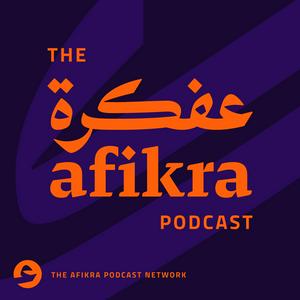
Scarica l'app gratuita radio.it
- Salva le radio e i podcast favoriti
- Streaming via Wi-Fi o Bluetooth
- Supporta Carplay & Android Auto
- Molte altre funzioni dell'app
Scarica l'app gratuita radio.it
- Salva le radio e i podcast favoriti
- Streaming via Wi-Fi o Bluetooth
- Supporta Carplay & Android Auto
- Molte altre funzioni dell'app


The afikra Podcast
scarica l'app,
ascolta.

